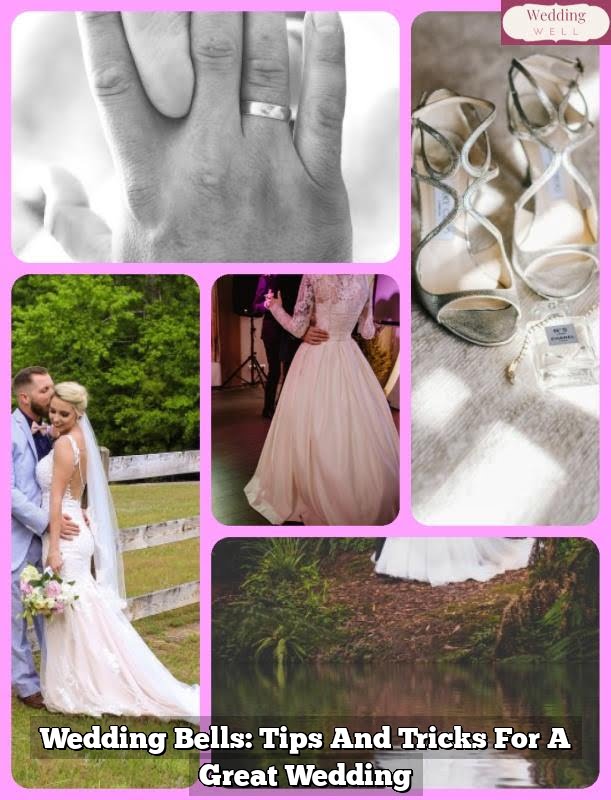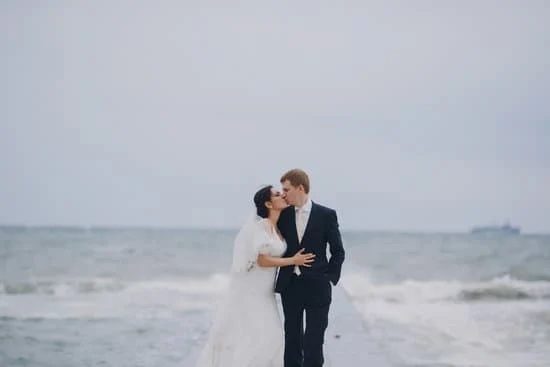How much is catering for a wedding? Catering at a wedding is a crucial element that can either enhance or detract from the overall experience for both guests and the newlyweds.
The food and service provided can truly make or break the event. In this article, we will explore the factors that affect the cost of wedding catering, provide an overview of average costs, discuss different types of catering services, offer tips for saving money, highlight hidden costs to consider, compare DIY catering versus professional catering, and provide questions to ask when hiring a wedding caterer.
When it comes to weddings, the catering plays a pivotal role in creating a memorable experience for all attendees. Whether it’s a formal sit-down dinner or a casual buffet-style meal, the quality and presentation of the food can significantly impact guests’ overall enjoyment of the event. Additionally, for the newlyweds, it is important that they are able to enjoy their special day without worrying about logistical issues related to food and service.
Throughout this article, we will delve into the various factors that can influence the cost of wedding catering. From the number of guests and dietary restrictions to the type of food and beverages offered, these elements all contribute to determining how much couples can expect to spend on catering for their wedding. Understanding these factors can help couples make informed decisions when planning their budget for this essential aspect of their celebration.
Factors That Affect the Cost of Wedding Catering
When it comes to planning a wedding, one of the most significant expenses is often catering. The cost of wedding catering can vary widely depending on a number of factors, and it’s important for couples to understand what these factors are in order to budget effectively. Here are some key factors that can impact the cost of catering for a wedding.
- Number of Guests: Perhaps the most obvious factor that affects the cost of wedding catering is the number of guests attending the event. Naturally, the more guests there are, the higher the overall cost will be. This is because catering companies typically charge on a per-person basis, so more guests mean more food and beverages to provide.
- Type of Food and Beverages: The type of food and beverage options chosen for a wedding can also have a significant impact on catering costs. For example, if couples opt for high-end or gourmet menu items, they should expect to pay more than if they were to choose simpler or more casual fare. Similarly, offering an open bar with premium liquor will add to the total expense compared to serving only beer and wine.
- Location of Venue: The geographic location of the wedding venue can also affect catering costs. In general, urban areas tend to have higher prices for goods and services than rural areas, so couples getting married in cities should anticipate paying more for catering than those hosting their weddings in less expensive locales.
Given these factors – such as number of guests, type of food and beverages, and location of the venue – it’s understandable why couples often wonder “how much is catering for a wedding?” And while there may not be a definitive answer without specific details about the event in question, understanding these key considerations can help couples make informed decisions about their wedding budgeting priorities.
| Factor | Impact on Catering Cost |
|---|---|
| Number of Guests | More guests = Higher overall cost |
| Type of Food and Beverages | Gourmet options = Increased expense |
| Location | Urban areas = Higher prices |
Average Cost of Wedding Catering
The cost of catering for a wedding can vary greatly depending on several factors, including the number of guests, the type of food and beverages chosen, and the location of the venue. The average cost range for wedding catering typically falls between $40 to $100 per person. This means that for a wedding with 100 guests, couples can expect to pay anywhere from $4,000 to $10,000 for catering services.
When considering the total cost of wedding catering, it’s essential to keep in mind that the type of catering package chosen will also impact the overall expense. For example, a plated meal service tends to be more expensive due to the labor involved in individually plating and serving each dish, whereas buffet-style or food truck options may offer more budget-friendly alternatives.
It’s important for couples to understand that these costs can add up quickly when factoring in other expenses such as rentals (tables, chairs, linens), equipment fees (chafing dishes, serving utensils), and additional charges like service fees and gratuity. Therefore, it is crucial for couples planning their wedding to carefully consider all these elements when budgeting for their catering needs.
| Cost Breakdown | Average Cost Range |
|---|---|
| Per Person | $40 – $100 |
| Total Cost (100 Guests) | $4,000 – $10,000 |
Types of Wedding Catering Services
When it comes to planning the catering for a wedding, couples have several options to consider in terms of how the food and beverages will be served to their guests. Each type of catering service comes with its own set of pros and cons, as well as cost implications that can impact the overall budget of the wedding. Here are some of the most popular types of wedding catering services:
- Plated Meals: This traditional style of catering involves serving a multi-course meal to each guest at their table. Plated meals often require a larger waitstaff and can be more expensive due to the labor involved in serving each individual plate.
- Buffet-Style: Buffet-style catering allows guests to serve themselves from a variety of food options laid out on long tables. This option can be more cost-effective as it typically requires less staffing and allows for better portion control.
- Food Truck Options: Food trucks have become increasingly popular for wedding catering due to their flexibility and unique offerings. While they may offer a more casual dining experience, they can also be a budget-friendly alternative for couples looking to provide delicious and diverse cuisine at their wedding.
The choice of catering service can significantly impact the overall cost of providing food and beverages at a wedding. Couples should carefully consider their preferences, budget, and overall theme or atmosphere they want to create when deciding which type of service is best suited for their special day.
In addition to these three main types of catering services, couples may also explore other options such as family-style dining or cocktail-style receptions. It’s essential for couples to discuss with potential caterers how each type of service could affect the final quote, taking into account factors such as staff requirements, rental equipment needs, and menu customization.
By understanding how different catering styles can influence costs, couples can make an informed decision that aligns with their vision and financial resources when deciding how much is catering for a wedding.
Tips for Saving Money on Wedding Catering
When it comes to planning a wedding, one of the biggest expenses that couples need to consider is catering. The cost of catering for a wedding can quickly add up, but there are ways to save money without sacrificing the quality of the food and service. Here are some practical tips and strategies for couples to save on wedding catering.
One way to save money on wedding catering is to choose a less formal dining style, such as buffet-style or food stations, rather than a plated meal. Buffet-style dining typically requires less staffing and allows for more flexibility in portion sizes, which can result in cost savings. Another option is to consider a food truck or food cart service, which can be fun and unique while also being more budget-friendly than traditional sit-down meals.
Additionally, couples can save money by being strategic about the timing of their wedding. Hosting a brunch or lunch reception can often be more budget-friendly than dinner due to lower food and beverage costs. Similarly, having a cocktail-style reception with passed hors d’oeuvres instead of a full meal can help cut down on catering expenses.
Finally, another way to save money on catering for a wedding is to prioritize seasonal and locally-sourced ingredients. Not only does this support local businesses, but it can also result in cost savings since seasonal produce is often more affordable and offers fresher flavors.
By implementing these tips and strategies, couples can successfully reduce the cost of catering for their wedding without compromising the quality of the food and service. Planning ahead and being strategic in selecting the right dining style and timing can make a significant difference in how much is spent on wedding catering while still providing an unforgettable culinary experience for guests.
Hidden Costs to Consider
When budgeting for wedding catering, couples often focus on the cost of food and beverages but may overlook potential hidden costs that can significantly impact their overall budget. It’s important to take into account various additional expenses that come with hiring a professional catering service for a wedding.
From service fees to gratuity and special dietary restrictions, these hidden costs can add up and catch couples off guard if they are not properly accounted for in the initial budgeting process.
Service Fees
One of the common hidden costs associated with wedding catering is the service fee charged by the caterer. This fee typically covers the cost of the waitstaff, setup, and breakdown of the event. Depending on the catering company, this fee can range from 15-25% of the total food and drink cost. Couples should inquire about this fee when discussing pricing with potential caterers to ensure they have an accurate understanding of the total cost.
Gratuity
In addition to service fees, couples should also consider including gratuity in their budget for wedding catering. Some caterers include gratuity as part of their final invoice, while others leave it up to their clients to decide on an appropriate tip amount. It’s essential to clarify this with the catering team and factor in gratuity when estimating the total cost of services.
Additional Charges for Special Dietary Restrictions
Special dietary restrictions such as gluten-free, vegan, or kosher meals may also result in additional charges from the caterer. Couples should communicate any specific dietary needs for themselves or their guests early on in the planning process and inquire about any potential upcharges associated with accommodating these requests. By accounting for these potential hidden costs upfront, couples can avoid last-minute surprises and stay within their overall budget without sacrificing quality or satisfaction for their guests.
DIY Catering vs Professional Catering
When it comes to catering for a wedding, one of the biggest decisions couples need to make is whether to opt for a professional catering service or go the DIY route. Each option has its own set of pros and cons, including cost implications that can significantly impact the overall wedding budget.
Pros and Cons of DIY Catering:
- Pros:
- Cost savings: With DIY catering, couples have the flexibility to shop around for ingredients and supplies, potentially saving money compared to hiring a professional catering service.
- Personalization: DIY catering allows couples to personalize the menu according to their preferences and incorporate family recipes or cultural dishes into the wedding meal.
- Control over portion sizes: Couples can have greater control over portion sizes when handling their own catering, reducing potential food waste.
- Cons:
- Time-consuming: Planning, shopping, prepping, and cooking for a large number of guests can be extremely time-consuming and stressful for couples leading up to their wedding day.
- Lack of experience: Unless one or both partners are experienced in large-scale event planning and food preparation, there is a risk of things going wrong on the day.
Questions to Ask When Hiring a Wedding Caterer
When it comes to planning a wedding, one of the most important aspects to consider is the catering. The food and beverages served at a wedding can have a significant impact on the overall guest experience and can make or break the event for the newlyweds and their loved ones.
However, when it comes to budgeting for wedding catering, many couples may feel overwhelmed by the potential costs and hidden fees that can come with hiring a caterer. In this section, we will discuss the important questions that couples should ask potential caterers to ensure transparency and avoid unexpected costs.
One of the first questions that couples should ask when hiring a wedding caterer is about their pricing structure. It is important to understand how the caterer prices their services, whether they charge per person, per hour, or have set package prices. This will give couples a better understanding of how much they can expect to pay for catering based on their guest count and menu selections.
In addition to understanding the caterer’s pricing structure, couples should also inquire about any additional fees that may be associated with their services. This could include gratuity, service fees, corkage fees for bringing in outside beverages, or charges for special dietary restrictions. By being upfront about these potential additional costs, couples can avoid any unexpected surprises when it comes time to settle the bill.
Another important question to ask potential caterers is whether they provide any inclusive packages or if there are à la carte options available. Understanding what is included in each package can help couples compare different catering options and make an informed decision based on their budget and preferences.
Overall, asking these important questions when hiring a wedding caterer is essential for ensuring transparency and avoiding unexpected costs. By having open communication with potential caterers and understanding their pricing structures and additional fees upfront, couples can better budget for their wedding catering without sacrificing the quality of food and service that they desire for their special day.
Conclusion
In conclusion, it’s clear that catering is a crucial aspect of any wedding, as it can greatly impact the overall experience for the couple and their guests. The cost of catering for a wedding can vary significantly based on several factors, including the number of guests, type of food and beverages, and the chosen catering service.
As couples navigate the process of budgeting for wedding catering, it’s important for them to be mindful of these factors in order to make informed decisions that align with their preferences and financial resources.
When considering the average cost of wedding catering, couples should be prepared for a range of prices depending on the type of catering package they select. From plated meals to buffet-style options or even food truck services, each comes with its own price point that should be factored into the overall wedding budget. Additionally, hidden costs such as service fees, gratuity, and special dietary restrictions should not be overlooked when planning for catering expenses.
In terms of saving money on wedding catering without compromising quality, couples may consider practical tips such as opting for seasonal ingredients, choosing a less formal dining style, or even exploring DIY options. Finally, when hiring a professional caterer, it’s essential to ask important questions upfront to ensure transparency and avoid unexpected costs down the line.
By being proactive and strategic in their approach to budgeting for wedding catering, couples can ultimately create an unforgettable dining experience for their special day while staying within their financial means.
Frequently Asked Questions
What Is the Cheapest Food to Cater?
The cheapest food to cater is typically items like pasta, rice, and potato dishes. These ingredients are inexpensive, filling, and can be easily scaled up to serve a large number of people.
Is It Cheaper to Cater or Cook?
Whether it’s cheaper to cater or cook really depends on the specific situation. In general, cooking at home is often cheaper for smaller events, but as the number of guests increases, catering may become more cost-effective due to economies of scale.
How Do You Calculate Catering Per Person?
Calculating catering per person involves considering the total cost of all food, beverages, staffing, and other expenses associated with the event. This total cost is then divided by the number of guests to arrive at a per-person cost for catering. It’s important to consider all factors to ensure an accurate calculation.

Welcome to my blog about home and family. This blog is a place where I will share my thoughts, ideas, and experiences related to these important topics. I am a stay-at-home mom with two young children. I hope you enjoy reading it! and may find some helpful tips and ideas that will make your home and family life even better!





